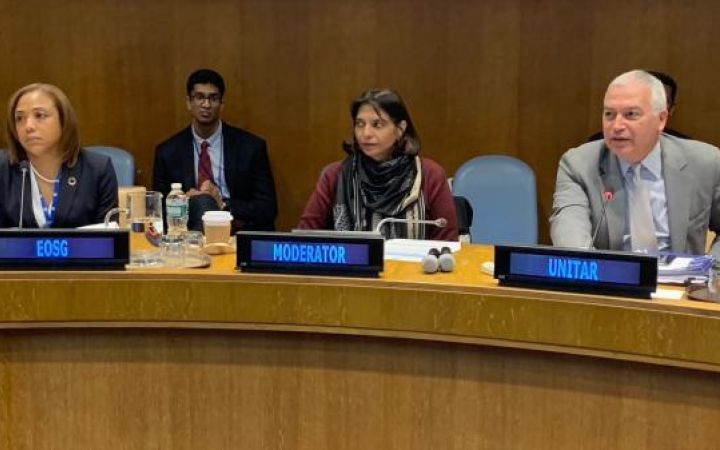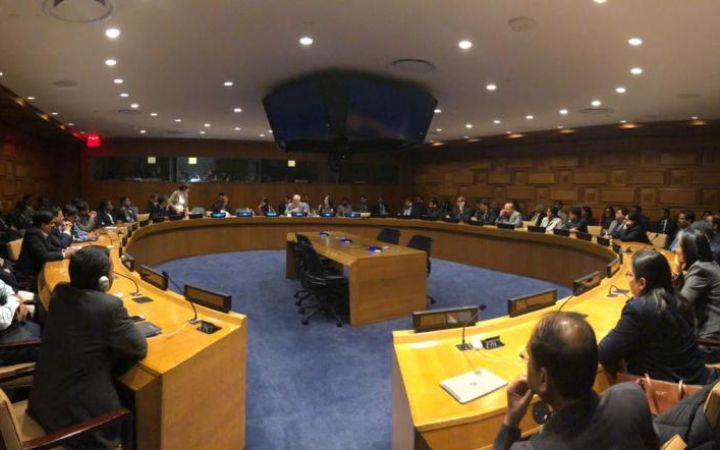19 October 2018, New York, USA – The United Nations for Training and Research (UNITAR) held a briefing for 63 administrative service officers from the Government of India in collaboration with Permanent Mission of India to the United Nations. These administrative officers represented 20 different states within India and many of them started from grass-root roles to now, policy-making roles with 15-20 years of government experience.
UNITAR New York Head of Office Mr. Marco Suazo opened the session by welcoming the administrative service officers and thanking the Permanent Mission of India for letting UNITAR collaborate on this briefing. Ms. Arti Ahuja, Joint Director & Course Coordinator, from Lal Bahadur Shastri National Academy of Administration in India moderated the event. The briefing hosted four presentations. Ms. Michelle Gyles-McDonnough, Director of the Sustainable Development Unit, Executive Office of the Secretary-General discussed how development is the key to peace. She also discussed how the 2030 Agenda is making a difference and how countries like India is helping to reach the Agenda through its solar power initiatives and its booming tech sector. In order for the full 2030 Agenda to be achieved, Ms. Gyles-McDonnough believes platforms like High-Level Political Forum (HLPF) allow for checks on the SDGs and how close we are to achieving the 2030 Agenda.
The next presentation was given by Ms. Rosemary Kalapurakal, Lead Advisor, SDGs and Acting Director, Bureau for Policy and Programme Support, under UNDP who discussed the relationship between India and UNDP which began in 1951. She stated that India has become a proud middle-income country. In order for it to keep adhering to the 2030 Agenda, India needs to view the SDGs at a subnational level by viewing the most important acupressure points to see how they will affect other goals. Ms. Marion Barthelemy, Director of the Office of Intergovernmental Support Coordination, Department of Economic and Social Affair presentation focused more on the intergovernmental parts of sustainable development. Ms. Barthelemy stated that one of the hallmarks of HLPF is voluntary national reviews (VNRs) which aim to facilitate the sharing of experiences, including successes, challenges and lessons learned, with a view to accelerating the implementation of the 2030 Agenda. Over 110 countries have already done this review while 51 are due to do it as well. Overall, the 2030 Agenda gives the framework for how the United Nations should operate. The last presentation was given by Mr. David O’Connor from World Resources Institute who works on the SDG Delivery Team. He focused on key features of the SDGs and provided conceptual guidance for implementation for a country like India. He believes the focus will shift more towards emerging and developing economies’ SDG readiness to implement such goals.
UNITAR is looking forward to future collaborations on workshops with the Permanent Mission of India to the United Nations.
Photo 1: Head of UNITAR New York Office Mr. Marco Suazo opening the session with the panelists
Photo 2: 63 administrative service officers from the Government of India were in attendance



